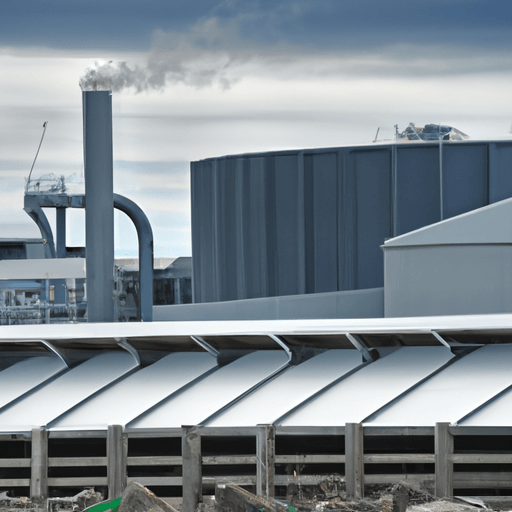Examining the Ethical Implications of Factory Farming
Factory farming has become an increasingly controversial topic due to its potential negative implications on animal welfare, the environment, and public health. In this article, we will explore the ethical implications of factory farming, potential regulations of the industry, and ways to reduce the negative implications of factory farming.
Impact on Animal Welfare
Factory farming has been widely criticized for its effect on animal welfare. Animals in factory farms are routinely subjected to abusive conditions, such as overcrowding, lack of veterinary care, and confinement in small cages. These conditions can lead to physical and psychological suffering for animals, as well as potentially dangerous diseases. Additionally, factory farms tend to prioritize cost-cutting measures over animal welfare, leading to practices such as the use of growth hormones and the routine use of antibiotics.
Impact on the Environment
Factory farming has also been linked to a number of environmental issues, including water pollution, air pollution, and soil degradation. The use of chemicals and fertilizers on factory farms can lead to contamination of local water sources and air, and the large-scale production of animals can lead to soil degradation and loss of biodiversity. Factory farming has also been linked to increases in greenhouse gas emissions, contributing to climate change.
Impact on Public Health
The unethical practices of factory farming can also have a negative impact on public health. The use of antibiotics in factory farms can lead to the development of antibiotic-resistant bacteria, making it more difficult to treat human illnesses. Additionally, the overcrowded and unsanitary conditions in which animals are kept in factory farms can lead to the spread of zoonotic diseases, which can then spread to humans.
Potential Regulation of the Industry
In order to reduce the negative implications of factory farming, it is important to consider potential regulations of the industry. One potential regulation is the implementation of animal welfare standards, such as minimum space requirements and access to veterinary care. Additionally, regulations could be put in place to reduce water and air pollution, as well as to reduce the use of antibiotics and other chemicals in factory farming. Finally, governments could create incentives for farmers to transition to more sustainable farming practices.
Ways to Reduce the Negative Implications of Factory Farming
In addition to potential regulations, there are other ways that individuals can reduce the negative implications of factory farming. One way is to reduce consumption of factory-farmed products, and to instead purchase sustainably-raised, humanely-produced animal products. Additionally, individuals can support organizations and initiatives that are working to reduce the negative effects of factory farming. Finally, individuals can spread awareness of the implications of factory farming and encourage people to make more ethical food choices.
Overall, factory farming can have a significant negative impact on animal welfare, the environment, and public health. In order to reduce these negative implications, it is important to consider potential regulations of the industry, as well as ways that individuals can reduce their consumption of factory-farmed products.




















Comments
Leave a Comment